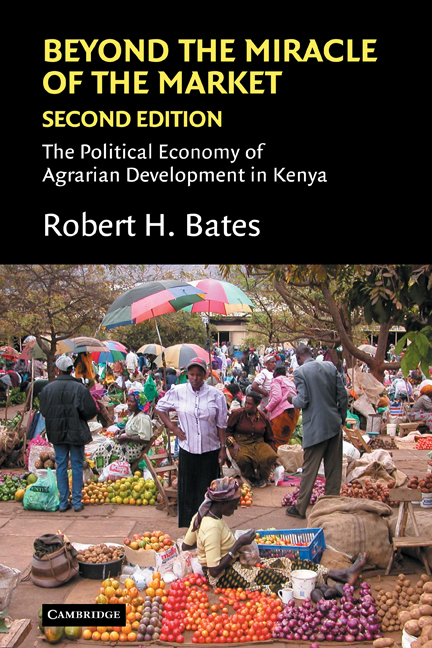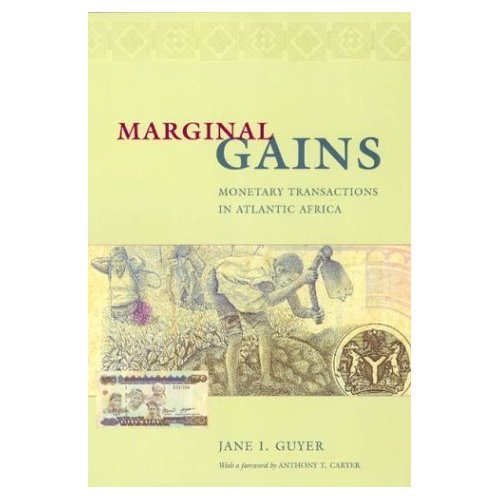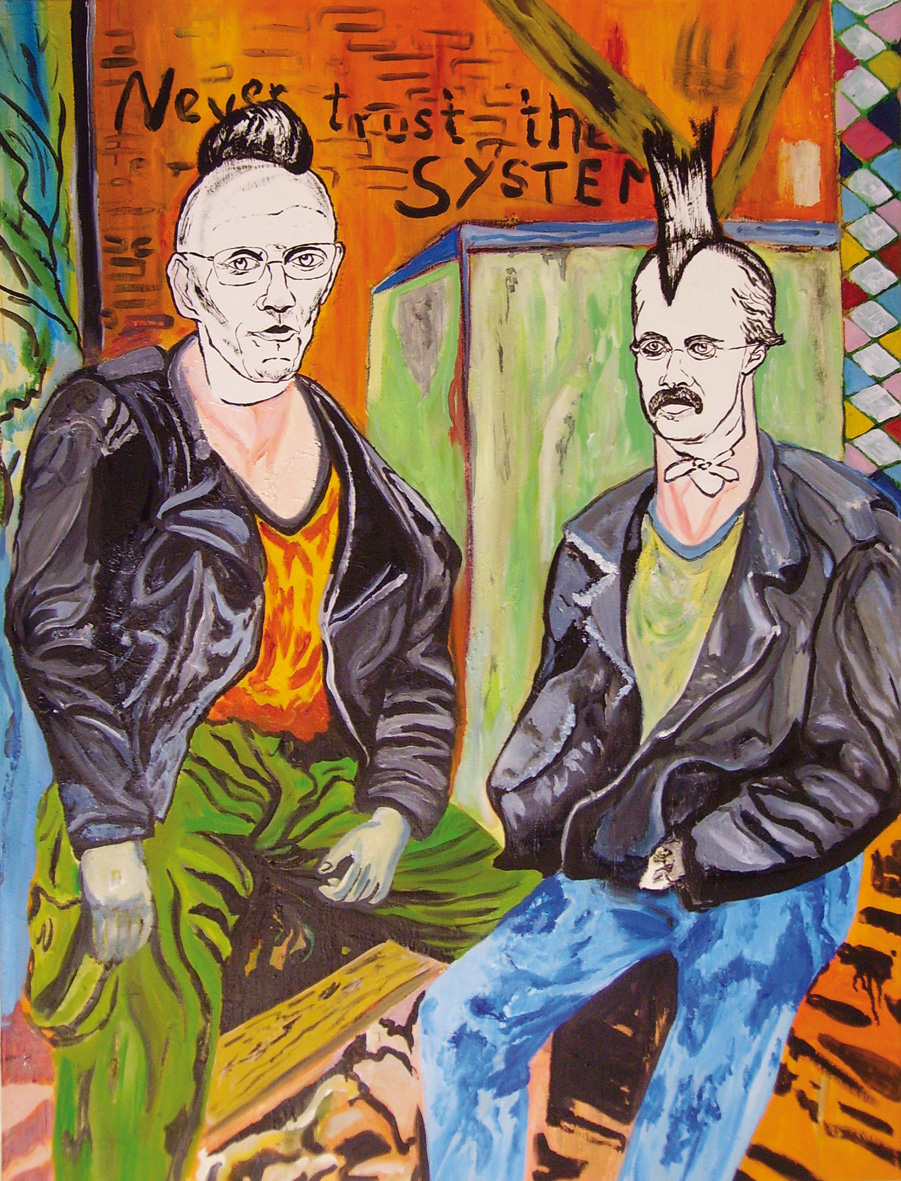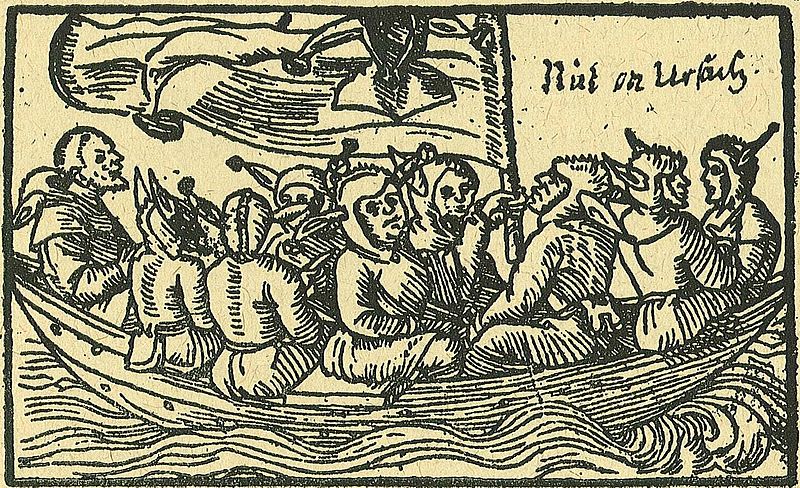Beyond the Miracle of the Market addresses broad questions, among which perhaps the broadest, most enduring has occupied theorists for centuries: Why do some countries succeed where others fail? To answer this in the context of late-twentieth century developing nations, Robert Bates constructs a detailed way of thinking about this central issue in economics, which troubles the very position of the State in its course. Markets, and the institutions that dominate their constituencies, take center stage here, while political and social interests form the supporting apparatus and the lenses through which to examine change in those institutions over time. In this way, Bates approaches the questions of growth, stability, and crisis in developing-nation economies without striking either condescending or dismissive tones, and without mistaking patterns for general truths. Continue reading
Tag Archives: history


Reflection – Jane Guyer
The economic anthropology of Jane Guyer, concentrated on Africa’s western and equatorial regions, finds rich expression in this collection of the Lewis Henry Morgan lecture series delivered at the University of Rochester some fifteen years ago. Guyer’s methodological reflexivity brings her implicit and explicit critique to bear on both traditional anthropology and traditional economics, the result of which is a nuanced, multivariate logic of exchange and decision-making that brings close contextualization to the fore of questions that might otherwise veer impossibly into the abstract. Historically grounded and empirically driven, Guyer elucidates the curious interplay between formal and informal markets in Atlantic Africa, particularly the role of circulation of multiple currencies at once. Continue reading

Reflection – U.N. Human Development Report 2001
A decade ago, we imagined development in the context of technology as a sprawling task, beset on all sides by uncertainty and ambiguity about the course of global information flows. As evinced by the United Nation’s annual report, policy and the economy together undergirded the activity of development, while a tangle of both instrumental and classical understandings of available data spanned our understanding of the data that impacted those twin pillars. Our ability to comprehend the status of efforts towards development in historical context – and the technological frameworks through which we formed and communicated that comprehension – put world-views at stake for both developers and those becoming-developed. Meanwhile, we left assumptions of the direction of developmental progress untroubled by ongoing global shifts in technological and cultural patterns. Continue reading

Foucault – Nietzsche, Genealogy, History
“Genealogy… must expose a body totally inscribed by history, and history’s destruction of the body.” (my translation)

Foucault – History of Madness / Madness and Civilization
A landmark topical study from Foucault’s early career, History of Madness took nearly forty years before arriving in the U.S. in a full translation. Jean Khalfa’s magnificent treatment of the sprawling text delivers Anglophone readers more than just extra pages. The differences between Madness and Civilization (based on the 1964 adaptation) and History of Madness (based on the original 1961 version) extend to conceptual nuances as well. In particular, the abridgment of the critique of psychiatry, in Madness and Civilization, flirts with a characterization of madness as repressed genius. But the more detailed argumentation in History of Madness, especially its focus on the institutional disciplines surrounding reason, emphasizes a conscientiously empirical archaeology of reason instead. Still, a central lament, for the loss of unreason after the 18th century, remains in force across both texts. Continue reading

Foucault – Archeology of Knowledge
Foucault’s methodological treatise, a decade in the writing, dismantles and reassembles historiography and epistemology. Rather than treat its object — discourse — as evidence of contiguous historical phenomena, Archaeology of Knowledge (AK) situates discourse as the rules that govern our organization and understanding of historical (as well as political, social, and other sets of) knowledge. At the same time, it describes discourse as a practice that encompasses the very making of those rules. True, then, that this abbreviated forum, as always, would fall short of adequate recapitulation of the book’s themes, let alone to float critique. But we can try:
The frontiers of a book are never clear-cut: beyond the title, the first lines, and the last full stop, beyond its internal configuration and its autonomous form, it is caught up in a system of references to other books, other texts, other sentences: it is a node within a network. Continue reading
Foucault – Position – Epistemic Limits
Whether coursing through archival data or meditating on turns of language, Foucault’s early works — the History of Madness, the Birth of the Clinic, the Order of Things, and the Archaeology of Knowledge — each address ways of knowing how and what we think. Based on the approach in those works, we can refocus their efforts onto a tertiary question. While lacking the familiar modulus of power, this approach can still maintain a close attention to the thought of thought as such. It helps elucidate how we conceive of the conditions to this reflexive thought, and thereby to sketch contemporary epistemic limitations. The motivating impulse here, then, is: What exists outside our conditions of possibility of thought, and how can we know it? Continue reading

Internet – On the Histories
This series digresses here to review and consider internet history. This includes, of course, the well-documented series of events and interactions and innovations and and and … that led to what we see when we go online these days. It also includes the conditions under which those events and interactions and innovations and so on took place, to inform ongoing research into internet development in other parts of the contemporary world. And, these posts stemming from the skeptical position of cultural scholarship, it also questions who gets to write the history of the internet, and with what sources. This line of questioning leads us back, cautiously, to the major themes of the semester.

Foucault – Order of Things
We have no words for things. Rather, words are things that make other things. Concatenated discourses — words in their material aggregation — actively shape more than signification and syntax. Foucault’s principal argument throughout The Order of Things attacks the commonsense notion that words merely represent, or that mimetic functions are language’s sad destiny as medium of communication, after we enter epistemic formations of knowledge that structure such notions. Granting deeper, nigh on originary, primacy to language, as progenitor of ways of being and of making things in the world, he shows us how such a notion arose in shifts between Western historical eras: the Renaissance, Classical, and modern periods. Continue reading
Foucault – Key Concepts – Archaeology

Foucault
These weeks I’ve turned from biographical and summary readings to Foucault’s early works. From here on, these posts will proceed at conceptual levels as much as is possible. Today, we turn to archaeology. In its simplest reduction, the concept denotes a history of discourse. In books such as the History of Madness, the Archaeology of Knowledge, and the Order of Things, Foucault undertakes examinations of discursive formations ranging from health and madness to scientific understanding to aesthetics and perception. Throughout each of these, he frames the conditions of knowledge in a given time period as constrained by the characteristics of that period, a general way of organizing and thinking about the world in each that he names an episteme. So, archaeology is the study of “epistemae,” and an episteme places discourse in historical context.